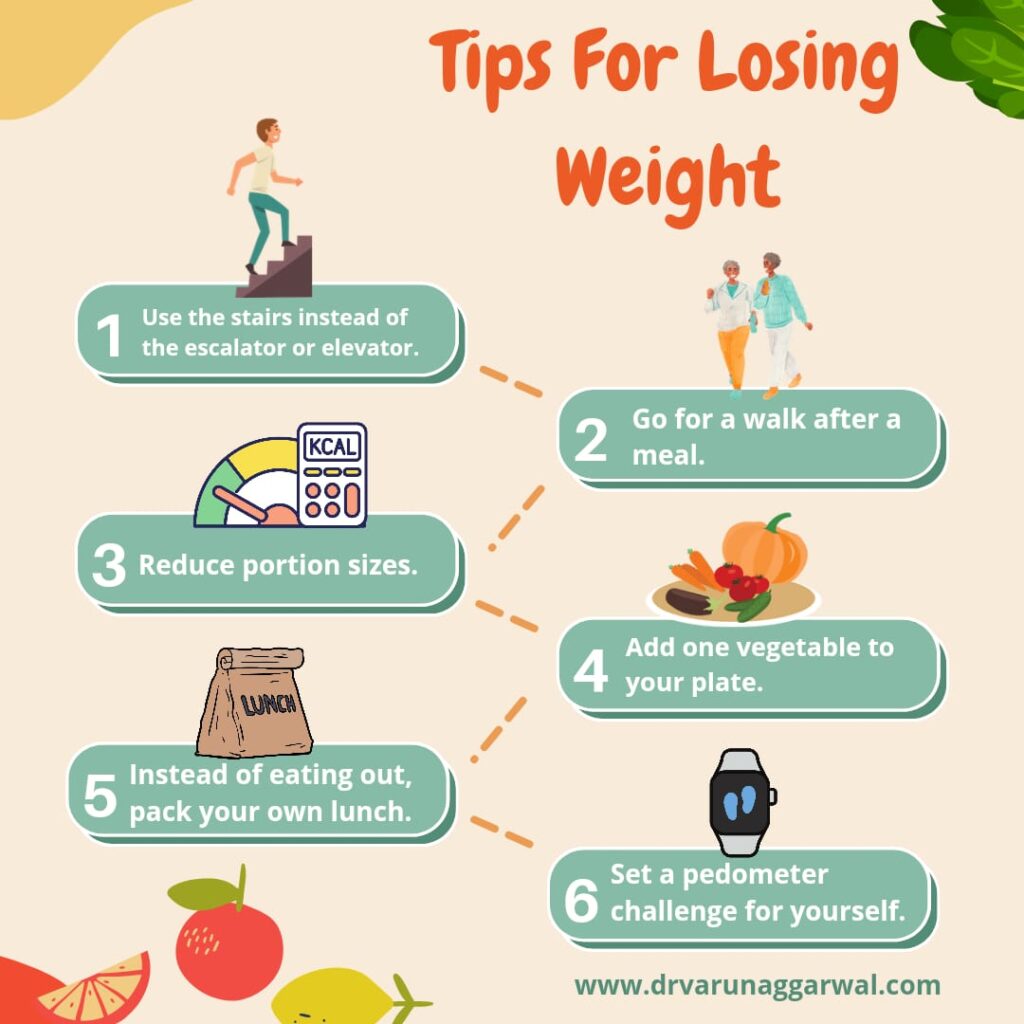It is important to maintain a healthy weight for your overall well-being. People who are overweight or obese often suffer from knee pain. Losing weight can help relieve pain and minimize the risk of osteoarthritis(OA).
In many cases, weight loss is more effective than many other widely used knee arthritis treatments, including strength training, glucosamine/chondroitin supplements, and more recently regenerative medicine treatments, such as PRP injections. Let us look in detail at the role of weight loss in knee pain management.

Reduce Joint Pressure
Losing weight helps many patients delay the need for knee replacement surgery as it reduces the pressure on joints. An Arthritis & Rheumatism study found that losing one pound of weight reduces four pounds of pressure on the knees. For example, if you lose 10 pounds (4.54 kg) of weight, your knees will have to bear 40 pounds (18.14 kg) less weight per step.
Reduce Disease Activity
Losing weight can reduce the severity of your arthritis. According to a study which evaluated the records of 171 RA patients, those who lost at least 5 kg of weight were three times more likely to have improved disease activity than those who did not. Another study found that short-term weight loss in obese people with psoriatic arthritis (PsA) have “substantial favourable impacts” on disease activity in joints, skin, and entheses, and skin.
Reduce inflammation.
Fat is an active tissue that produces and releases chemicals that promote inflammation. The overall inflammation in your body will decrease, as you reduce your body’s fat stores.
According to a 2018 article in Autoimmunity Reviews, obesity can cause and maintain low-grade inflammation throughout the body. This inflammation can aggravate autoimmune diseases like rheumatoid arthritis, psoriatic arthritis, and lupus, as well as their accompanying comorbidities, like heart disease.
Reduce Uric Acid Levels and Chance of Gout Attack
An analysis of 10 studies published in the Annals of Rheumatic Diseases in 2017 found that weight loss is helpful for obese or overweight people with gout. Overall, the patients who reduced their weights saw fewer gout attacks and decreased serum uric acid levels.
Slows Cartilage Degeneration in OA
According to a study that examined magnetic resonance imaging (MRIs) of 640 overweight or obese patients’ osteoarthritic knees, participants who reduced weight over four years had significantly less cartilage degradation. So, the risk of disease progression decreases with increased weight loss.
Tips For Losing Weight
Although losing weight can be difficult, there are several health benefits to doing so if you are overweight. It benefits your arthritis as well as reduces your risk of getting diabetes, sleep apnea, heart disease, and some types of cancer. You can start reducing weight by following the below tips.
- Use the stairs instead of the escalator or elevator.
- Go for a walk after a meal.
- Reduce portion sizes.
- Add one vegetable to your plate.
- Instead of eating out, pack your own lunch.
- Set a pedometer challenge for yourself and walk for a longer distance.
Click here to contact for more information


